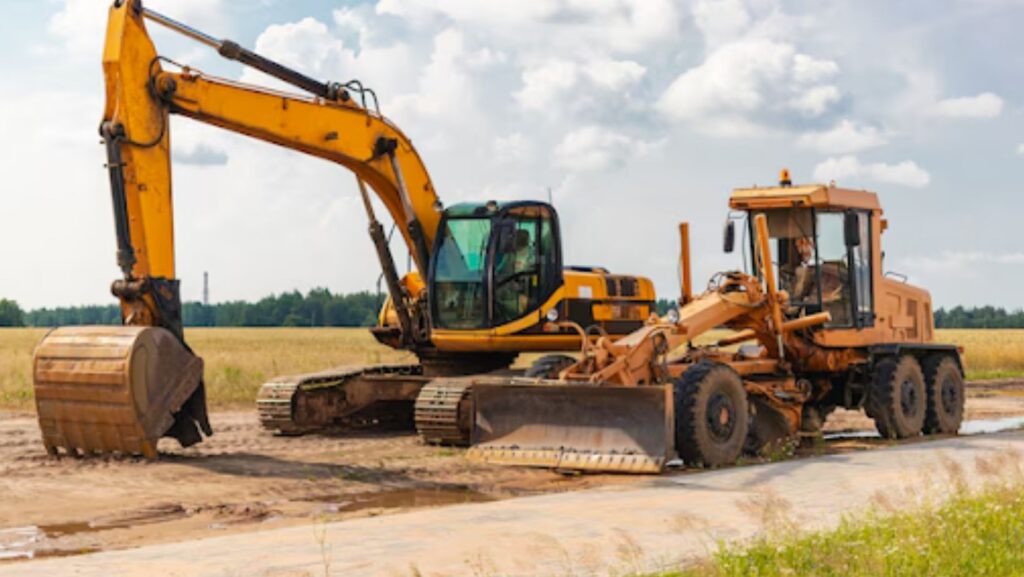In today’s construction industry, efficiency, versatility, and cost-effectiveness are more important than ever. Modern construction equipment is designed not just to perform a single task but to adapt to multiple roles through attachment compatibility. This innovation allows a single machine to perform the functions of several, making it a cornerstone of modern construction practices.
Understanding Attachment Compatibility
What Is Attachment Compatibility?
Attachment compatibility refers to the ability of construction equipment to integrate seamlessly with a variety of specialized tools, such as:
- Blades
- Trenchers
- Grading rakes
- Hydraulic breakers
- Snow blowers
This adaptability allows the equipment to transition between tasks quickly, increasing its utility across diverse projects.
How It Works
Most modern machines are built with standardized mounting systems, making it easier to attach and detach tools. Advanced models may also feature automated systems for secure and efficient attachment changes, minimizing downtime.
Key Benefits of Attachment Compatibility
-
Enhanced Versatility
Attachment compatibility transforms a single machine into a multi-functional workhorse. For example:
- An excavator equipped with a bucket can perform digging tasks while swapping to a hydraulic breaker allows it to handle the demolition.
- Skid steers outfitted with snow blowers or rakes can easily transition between clearing snow and landscaping.
This adaptability reduces the need for multiple specialized machines, saving both space and resources.
-
Cost-Effectiveness
Investing in compatible attachments is significantly more economical than purchasing separate machines for each task. This approach provides:
- Lower Initial Investment: Instead of buying multiple machines, a single base unit with various attachments can achieve the same results.
- Reduced Maintenance Costs: Maintaining attachments is generally more affordable than servicing multiple machines.
- Streamlined Fleet Management: Fewer machines mean simpler logistics and reduced storage requirements.
-
Increased Efficiency
The ability to switch between tasks without changing equipment minimizes downtime. Quick attachment changes allow operators to:
- Respond to shifting project demands on the fly.
- Complete multiple tasks within the same workday.
- Improve workflow continuity by reducing delays.
For instance, in a road construction project, a loader with grading and trenching attachments can efficiently handle soil preparation and drainage work without the need to mobilize additional equipment.
-
Greater Jobsite Flexibility
Modern projects often involve a range of activities, from excavation to landscaping. Equipment with attachment compatibility can handle the following:

- Tight Deadlines: Swift changes in tools keep projects on schedule.
- Varying Site Conditions: Tools such as augers or grapples can adapt machines for rocky terrain or dense vegetation.
- Specialized Requirements: Attachments designed for specific tasks, like post-hole diggers or mulchers, allow machines to meet niche project needs.
-
Operator Convenience
Operators benefit from the intuitive design and user-friendly interfaces of modern machines. Features include:
- Automated Systems: Quick couplers and hydraulic locking mechanisms reduce the effort needed to change attachments.
- Pre-Set Configurations: Advanced equipment often allows operators to pre-set hydraulic flow rates for specific tools, streamlining operations.
- Ergonomic Controls: Enhanced control systems ensure smooth transitions between tasks.
These advancements not only boost productivity but also reduce operator fatigue and improve safety on-site.
-
Environmental Benefits
Reducing the number of machines on-site lowers fuel consumption and emissions. With fewer machines operating, projects can achieve:
- Reduced carbon footprints.
- Lower noise pollution.
- More sustainable construction practices.
These factors make attachment-compatible equipment a smarter choice for eco-conscious projects.
Choosing the Right Attachments
Consider Project Requirements
Before purchasing attachments, evaluate the tasks your projects frequently involve. For example:
- If your projects include demolition, hydraulic breakers are essential.
- Landscaping professionals might prioritize attachments like grading rakes or trenchers.
Check Compatibility
Ensure the attachments you choose are compatible with your existing equipment. Opt for tools designed specifically for your machine’s make and model to guarantee seamless integration.
Prioritize Quality
High-quality heavy equipment for sale nova scotia attachments use and reduce the risk of breakdowns. Durable materials and reliable engineering ensure long-term value.
Maintenance Tips for Attachments
Proper maintenance is key to extending the lifespan of attachments. Here are some tips:
- Clean After Use: Remove debris and dirt to prevent wear and tear.
- Inspect Regularly: Check for signs of damage or wear, especially in hydraulic components.
- Follow Manufacturer Guidelines: Adhere to maintenance schedules and storage recommendations.
- Use Appropriate Storage: Keep attachments in a dry, secure location to prevent rust or degradation.
The Future of Attachment Compatibility
As technology evolves, attachment compatibility continues to improve. Future advancements may include:
- Smart Attachments: Integrated sensors that provide real-time performance feedback.
- Autonomous Systems: Attachments that adjust settings automatically based on project demands.
- Improved Energy Efficiency: Tools designed to maximize productivity while minimizing energy consumption.
These innovations will further enhance the efficiency and sustainability of construction projects.
Conclusion
Attachment compatibility is revolutionizing the construction industry by making equipment more versatile, efficient, and cost-effective. By investing in compatible tools, professionals can handle a wide variety of tasks with fewer machines, reducing costs and simplifying operations. Whether you’re working on excavation, material handling, or site preparation, the ability to switch attachments seamlessly ensures that your projects are completed on time, within budget, and to the highest standard.



More Stories
5 Ways to Avoid Common Outdoor Event Planning Mistakes
Why You Should Invest In Professional Scaffolding Services?
Maximizing Space and Functionality: The Ultimate Guide to Garage Building